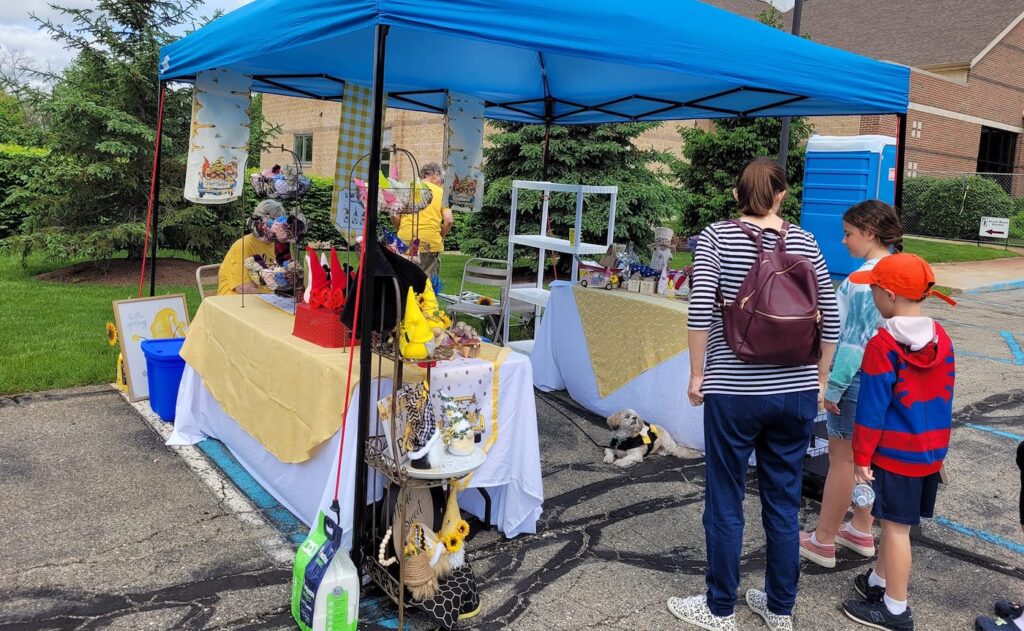
ADRIAN TWP. — Anyone interested in learning more about bees, beekeeping, or just having fun will find it at the third annual Bee Day Festival hosted by the River Raisin Beekeepers Club.
The Bee Day Festival will be held on Saturday, May 18, from 10 a.m. to 4 p.m. at St. John’s Lutheran Church, 3448 N. Adrian Hwy., Adrian.
Food vendors, 15 local artisans, and games and activities for kids, such as building a bee watering station, will be featured, according to Janet Tucker, event organizer, as well as “all-around guru” for the River Raisin Beekeepers Club.
Observation hives will be displayed so the public can actually see the bees, “which is always really cool,” Tucker added. Educational booths, such as information on beekeeping history in the United States, will also be featured.
“Of course, none of the bees came from here,” Tucker said. “They all came from someplace else.”
Honeybees were brought to America with immigrants around 1822. They began to spread throughout the U.S. soon after.
“We do have lots of native pollinators as well but only the honeybee actually produces the sweet, golden nectar we all know as honey,” she said.
“There’s activities for all ages and learning opportunities for everyone,” she said. “Because that’s really what our focus is.”
“It’s not just being out there and selling crafts,” Tucker said. “We really want to educate the public on the importance of bees as pollinators.”
“We do focus on honeybees because we are all beekeepers but we really need to spread the word on how important these pollinators are to our ecology and our agriculture,” she added. “They produce everything for us so we really need to make sure that people are aware of what their importance is.”
The River Raisin Beekeepers Club was founded a little over a decade ago by beekeeper, educator and club president Don Warner. The club meets 10 times a year.
Tucker got interested in beekeeping because she “always loved honey.”
“When we finally got out of the military and we moved back here, we decided that instead of going in search of keepers, that I would become one and make my own honey,” she said.
Tucker said she keeps the bees in a field by her house. She said that her neighbors don’t mind having bees in the area.
“They love the honey,” she said. They don’t mind at all because they know that the bees are pollinating their vegetable gardens and they’ve got a nice source of honey by them, she added.
“Even the dairy farm that’s by me — they’re very aware of the fact that I have an apiary on my property and they’re very careful about what they put on their crops,” she continued, referring to agriculture chemicals that might be harmful to the bees.
The bees collect pollen from wildflowers, soybeans, vegetables, basswood, willow trees, and other plants.
“Just about everything that flowers in nature, the bees can take something off of,” she said.
Local beekeepers benefit the community in more than one way. Local honey has the advantage of being “pure honey,” not cut with sugar syrup, wheat syrup or corn syrup, Tucker said.
“When bees feed on local plants, the pollen they use to make the honey comes from local plants,” she said. Local honey gives health benefits such as antioxidants and microbacteria, and is also better tasting, she added.
Related story: Many Lenawee residents find joy in beekeeping

